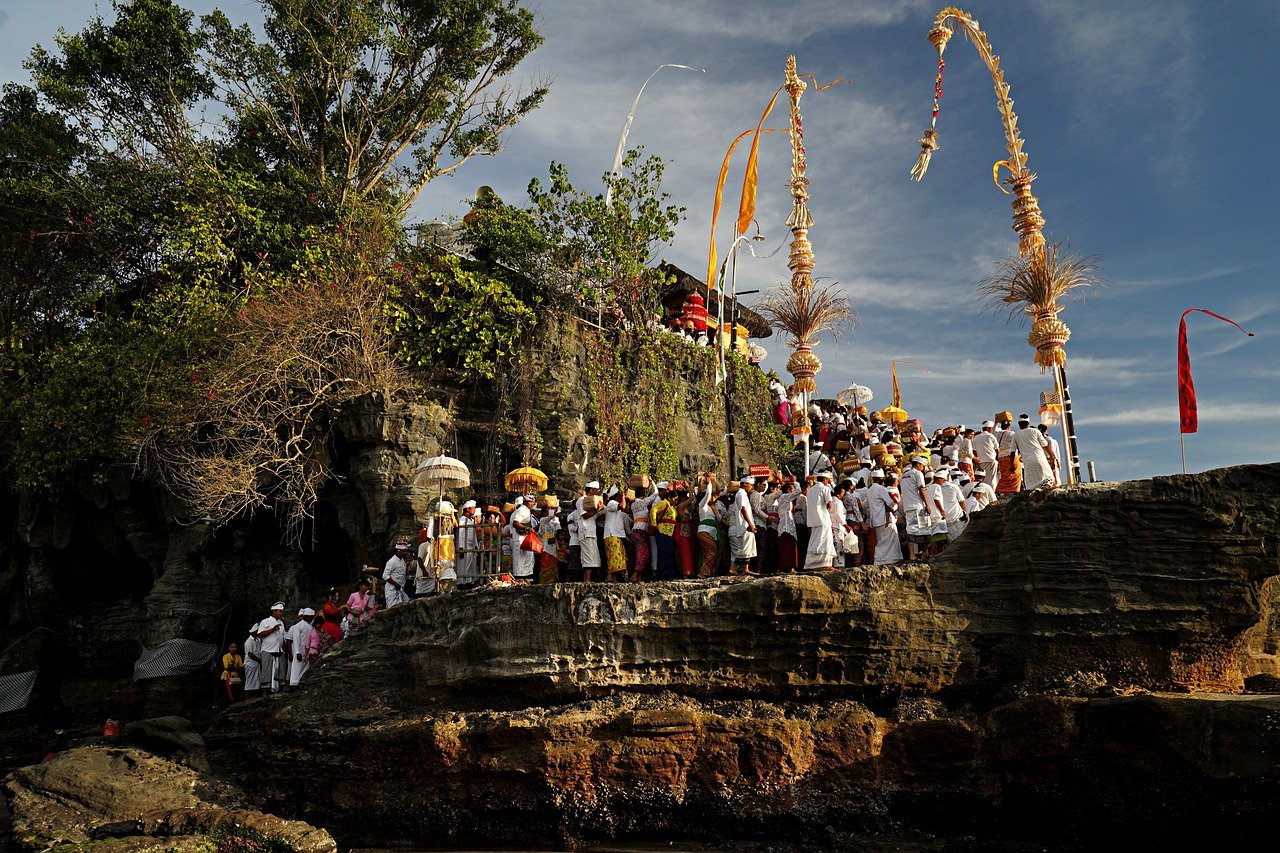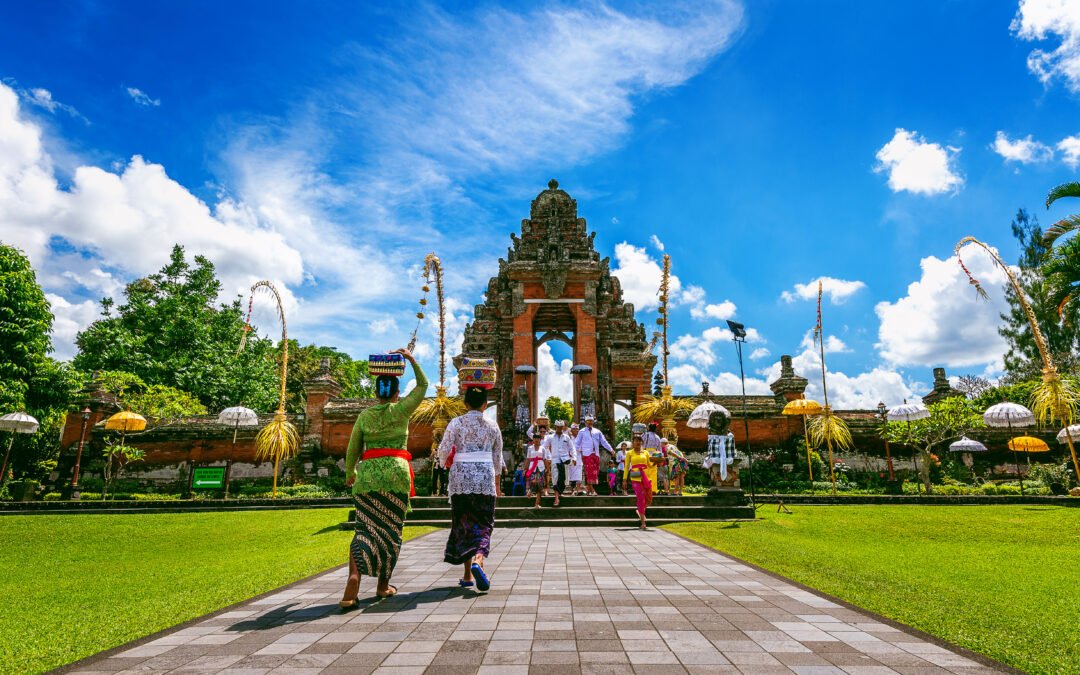Villaku.com – People need to understand the meanings of Galungan and Kuningan. To promote harmony among religious communities, both people and non-people must be aware of these Balinese Hindu holidays.
Especially if non-Balinese Hindus are vacationing on the Island of the Gods. If the meaning of the Galungan and Kuningan celebrations is understood, non-Balinese Hindus are obliged to appreciate the ongoing festivities.
Every religion, including Hinduism, has a major religious holiday that serves as a motivator for its adherents to follow their religious teachings.
According to the book Pendidikan Toleransi Sasak Muslim Bali Hindu di Kota Mataram by Lalu Khothibul Umam (2021), Galungan and Kuningan are Pakuwon and Sasih-themed celebrations.
Galungan and Kuningan are derived from Old Javanese and mean “to win” or “fight.” Galungan also means “dungulan,” which means “to win.”

Image by hartono subagio from Pixabay
In Java, the eleventh wuku is known as Wuku Galungan. In Bali and Mataram Lombok, the eleventh wuku is known as Wuku Dungulan. Although the words are different, they both convey the same message. In Java, the term legi refers to the pancawara’s details. While in Bali, it is known as Umanis, which translates as sweet.
According to the Balinese-Javanese calendar (Javano-Balinese Calendar), the Buddhist holiday kliwon wuku dungulan for Hindus in Indonesia refers to Galungan Day, which is followed by the Kuningan Day celebration ten days later.
Galungan and Kuningan last ten days. In India, a comparable celebration with the same meaning is known as Hari Raya Sradda Wijaya Dasami, or the Day of Glory, and is similarly observed for 10 days.
Galungan and Kuningan celebrations are distinguished by a variety of features, including penjor made of bamboo and surrounded with young yellow coconut leaves. Young palm leaves can also be used as decorations for Hindu rites on a daily basis.
That is the meaning of Galungan and Kuningan, Hindu holidays. This celebration is very lively in Bali, therefore if non-Hindus happen to visit the gods’ island, they should observe this commemoration as well.


